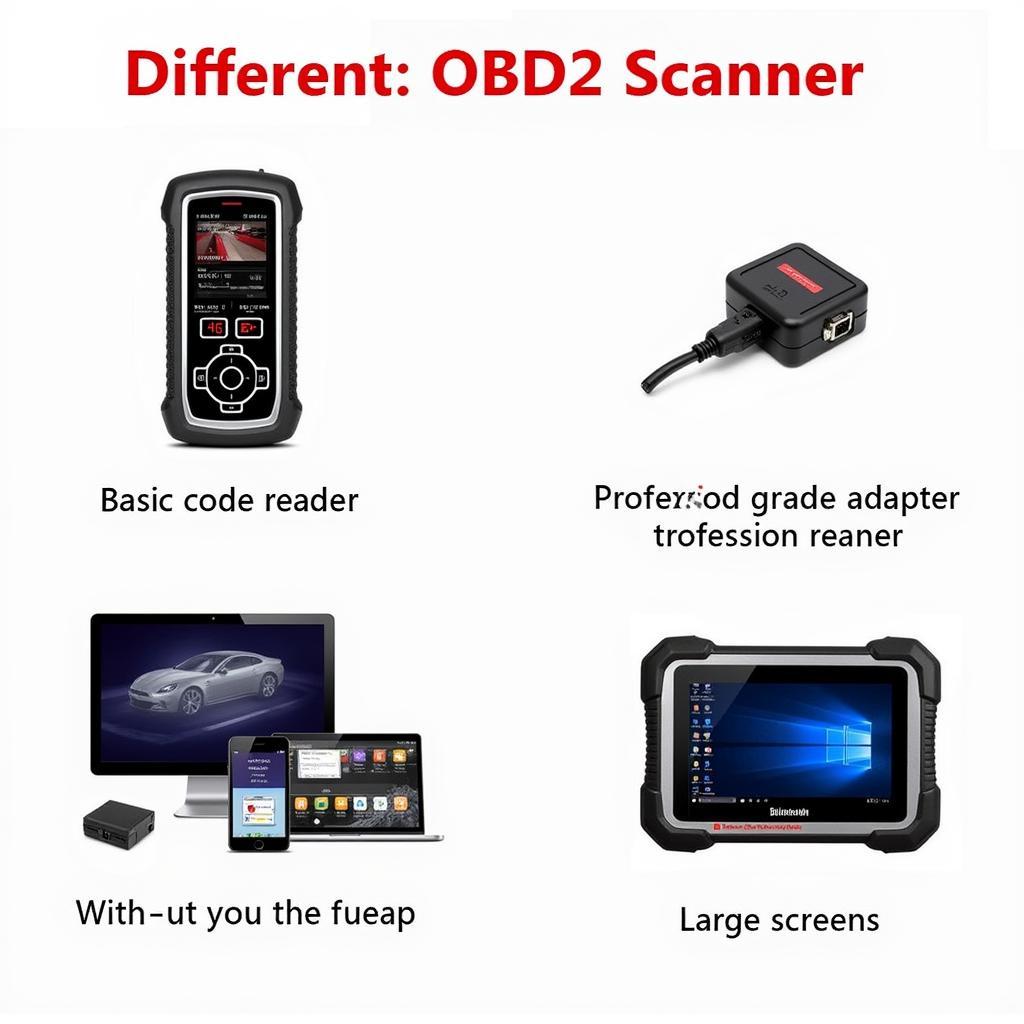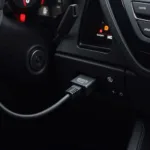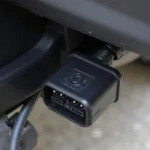Understanding OBD2 scanner compatibility is crucial when choosing a diagnostic tool for your vehicle. The wrong scanner might not communicate with your car’s computer, leaving you with a useless device. This comprehensive guide will delve into the intricacies of OBD2 scanner compatibility, ensuring you make an informed decision.
Decoding OBD2 Scanner Compatibility
OBD2, or On-Board Diagnostics, is a standardized system allowing vehicles to self-diagnose and report issues. While all cars manufactured after 1996 in the US are OBD2 compliant, compatibility isn’t always straightforward. Here’s why:
-
Communication Protocols: OBD2 scanners use various communication protocols to talk to your car’s computer. Some common protocols include SAE J1850 PWM, SAE J1850 VPW, ISO 9141-2, ISO 14230-4 KWP2000, and ISO 15765-4 CAN. Your car might use one or a combination, and your scanner needs to support the same ones.
-
Vehicle-Specific Features: While OBD2 standardizes basic diagnostics, manufacturers often add proprietary systems for advanced functions. Certain scanners specialize in specific brands or models, offering deeper access to these unique systems.
-
Software Updates: Vehicle manufacturers constantly update their software, sometimes affecting OBD2 compatibility. A scanner might work perfectly with your 2018 car but struggle with the 2020 model. Regular software updates from the scanner manufacturer are essential to maintain compatibility.
Factors Affecting OBD2 Scanner Compatibility
When choosing an OBD2 scanner, several factors come into play:
-
Vehicle Make, Model, and Year: This is the most crucial factor. Always check the scanner’s documentation or use online compatibility checkers provided by manufacturers like Bosch OBD2 scanner compatibility.
-
Scanner Type: Basic code readers are generally compatible with most OBD2 compliant vehicles, while advanced scanners with live data streaming and bi-directional controls might have limitations.
-
Software Version: As mentioned, ensure your scanner has the latest software updates to guarantee compatibility with newer vehicles and features.
Common OBD2 Compatibility Issues
Even with a compatible scanner, you might encounter issues:
-
Loose Connection: The most common issue, ensure the scanner is firmly plugged into the OBD2 port.
-
Faulty OBD2 Port: Sometimes, the vehicle’s OBD2 port itself might be faulty. Check for bent pins or damage.
-
Software Glitches: Try restarting your car or the scanner. Disconnecting the battery for a few minutes can also help reset the system.
 Different Types of OBD2 Scanners
Different Types of OBD2 Scanners
Choosing the Right OBD2 Scanner for Your Needs
With numerous OBD2 scanners on the market, choosing the right one can be overwhelming. Consider these factors:
-
Budget: Basic code readers are affordable, while professional-grade scanners with advanced features come at a higher price.
-
Skill Level: If you’re a DIY enthusiast, a basic scanner will suffice. Professional mechanics need more sophisticated tools.
-
Features: Live data streaming, bi-directional controls, and manufacturer-specific functions cater to specific needs.
Ensuring Long-Term Compatibility
To avoid future compatibility issues:
-
Choose Reputable Brands: Reputable brands like Ancel and Bosch prioritize compatibility and provide regular software updates.
-
Check for Updates: Regularly check the manufacturer’s website for software updates and install them promptly.
-
Read Reviews: User reviews can provide valuable insights into compatibility issues with specific car models.
Frequently Asked Questions
1. Will any OBD2 scanner work with my car?
Not necessarily. Ensure the scanner supports your car’s communication protocols and is compatible with its make, model, and year.
2. What if I can’t find my car on the compatibility list?
Contact the scanner manufacturer directly. They often have updated lists or can provide guidance.
3. Do I need a different scanner for each car I own?
Not always. Some scanners support a wide range of vehicles. However, if you own cars from different manufacturers or years, a more versatile scanner might be necessary.
4. How often do OBD2 scanners need software updates?
It varies depending on the manufacturer and the rate of vehicle software updates. As a rule of thumb, check for updates at least every six months.
5. Can I update my OBD2 scanner myself?
Yes, most manufacturers provide software updates that you can download and install on your scanner yourself, usually through a USB connection.
Conclusion
OBD2 scanner compatibility is crucial for accurate vehicle diagnostics. By understanding the factors influencing compatibility and choosing the right scanner for your needs, you can ensure a seamless experience. Don’t let compatibility issues leave you stranded. Research, compare, and select a scanner that empowers you to take control of your car’s health.
Remember, a compatible OBD2 scanner is an investment in your vehicle’s well-being, providing peace of mind and potentially saving you from costly repairs down the road.
For those interested in learning about specific scanner compatibilities, you can explore resources like the Ancel VD500 OBD2 scanner car list or find more information about OBD2 scanner years. If you’re considering a specific app like Carly, understanding OBD2 scanner Carly compatibility is essential.
We understand that navigating the world of OBD2 scanners can be challenging. That’s why we encourage you to reach out if you have any further questions or need assistance. Our team of experts is available 24/7 to provide guidance and support via WhatsApp: +1(641)206-8880 or Email: [email protected]. We’re here to help you make the best choice for your car maintenance needs.

